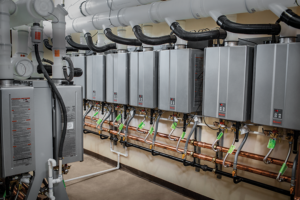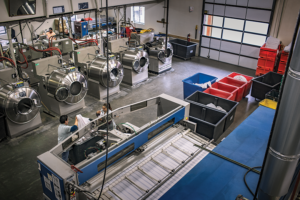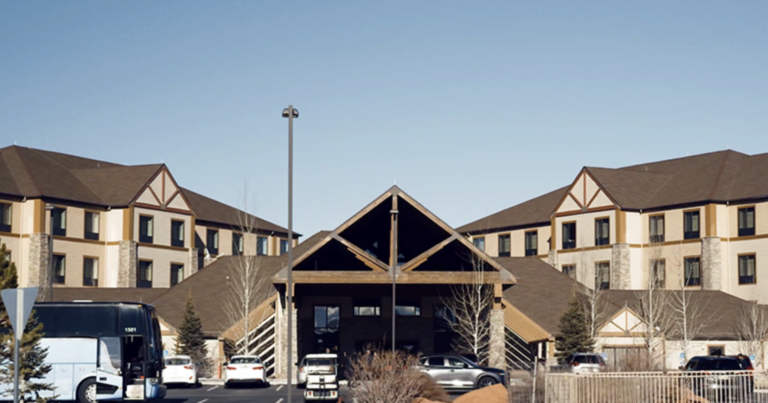Founded in 1916 by Reuben Syrett, Ruby’s Inn is a top-rated lodging and attraction serving tourists of Bryce Canyon in southern Utah. The sprawling campus includes 19 buildings, 700 hotel rooms, three restaurants, an RV park, a campground, three swimming pools and a laundry facility handling 19 tons of laundry per day. Needless to say, the resort’s hot-water system was under tremendous strain, particularly when the influx of tourists arriving at the same time via tour bus creates huge hot-water demands at once.

According to Lance Syrett, the general manager of Ruby’s Inn, the resort can have as many as 4,000 visitors lodging on a typical summer night. Ruby’s Inn was operating on an older infrastructure with no redundancy system in place for its boilers, so when a boiler went down, the resort could go two hours or more without hot water. Cold water and customer dissatisfaction led to significant financial loss for the resort to the tune of up to $60,000 a year in guest discounts and refunds, according to Ruby’s Inn manager Ron Harris.
Retrofitting with Propane Provides Clean, Efficient Water Heating
To curb the cold water at Ruby’s Inn, the resort partnered with Rinnai to remove several 199,000 Btu storage-tank water heaters, older model open-flame boilers and storage tanks, and installed 175 propane-powered tankless water heaters throughout the resort, giving it a completely revitalized system.
Commercial tankless systems have the versatility to meet a wide range of load types while offering reliability, efficiency and a space-saving footprint. These systems are available in a variety of capacities and can be combined into larger arrays for water output rates of several hundred gallons per minute. Plus, they don’t waste energy or space while keeping a large water tank hot at all hours.
Beyond the system’s energy efficiency, propane tankless water heating also supports the resort’s environmentally conscious approach. Based on an energy and environmental analysis of different energy sources, propane tankless systems reduce carbon emissions by up to 50 percent compared with electric storage tank systems.
“Being located next to a national park, we always think about our carbon footprint,” Harris says. “We feel confident about our carbon footprint and propane being a good energy source for us to use.” In addition, businesses operating with propane are never limited by proximity to the grid, which is great for Ruby’s Inn—located more than 25 miles from the natural gas line. “Whether it’s restaurants, an apartment complex, hospitals, schools or a large resort like ours, I’d recommend it,” Harris says.

Propane Retrofit Boosts Customer Satisfaction and Savings
The resort’s retrofit to a propane tankless system immediately helped it lower operational costs, enhance guest comfort and save up to 7,000 gallons of propane per month—about $6,000 in monthly savings. Years after the retrofit, Ruby’s Inn is still reaping benefits from its new tankless system—and so are its visitors. Harris says the resort has yet to refund $1 for hot-water problems and estimates a savings of more than 73,000 gallons of propane per year. In fact, later this year, the resort plans to add even more propane-powered Rinnai tankless water heaters to further expand its hot-water capacity for future growth.
High-efficiency systems also allow Ruby’s Inn to lower operational costs and save money during busy seasons and in times when keeping business costs low is a must. These ongoing savings have allowed Ruby’s Inn to put extra money into capital expenses, like furnishings, updated fixtures and even a new boiler system. The resort recently replaced two outdated boilers in the main lodge with two new 3.5 million Btu propane boilers. The new system heats the pool, spa and provides space heating in the main lodge. Since installing the boilers, Ruby’s Inn has saved 13,000 gallons of propane per month. “We were, without a doubt, going to go with propane,” Harris says. “There’s no other way to heat everything. (The price of) electricity would have been astronomical. … The reliability has been great.”
To learn more about the using commercial propane applications in your next retrofit project, visit Propane.com.




